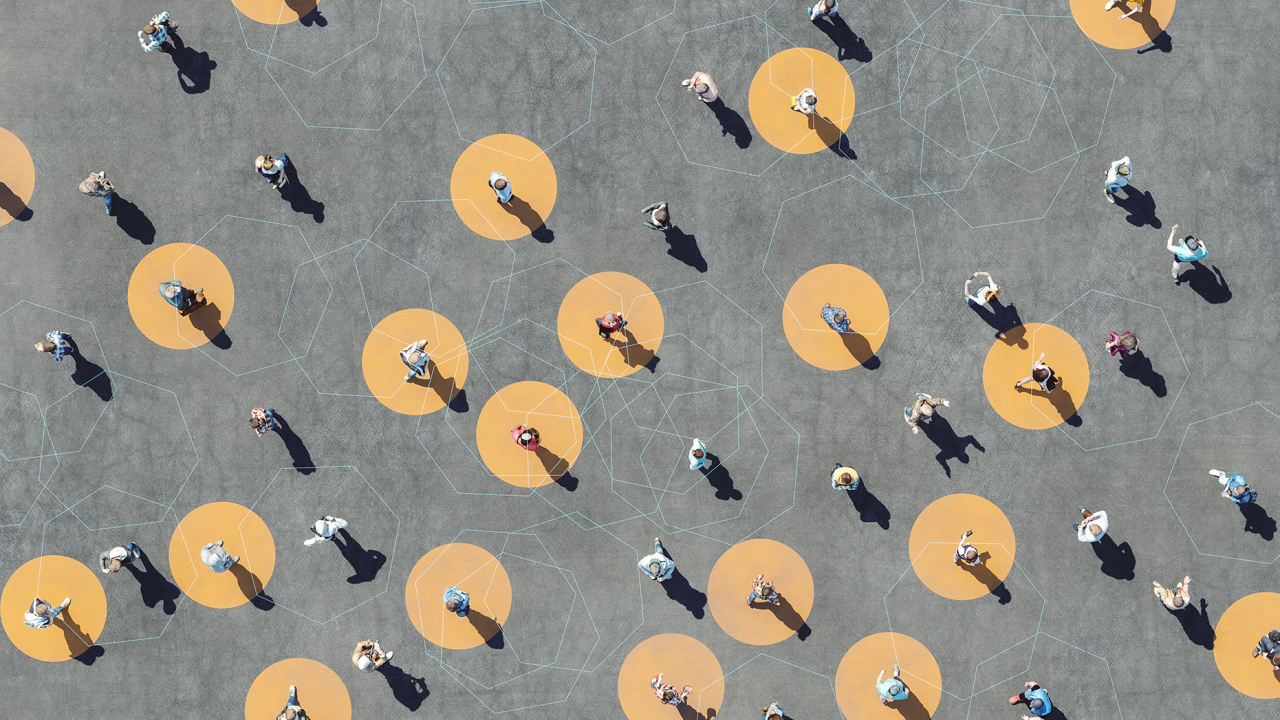New York, NY | November 1, 2023 – Today, bolstered by a $2.5 million grant from The Rockefeller Foundation, data.org announces a partnership with the World Health Organization Hub for Pandemic and Epidemic Intelligence (“WHO Pandemic Hub”) to drive the development and deployment of digital public goods for pandemic and epidemic intelligence. This collaboration builds on data.org’s Epiverse initiative—funded and supported by The Rockefeller Foundation, Wellcome, and IDRC—by bringing together a united global health intelligence community to foster greater adoption of accessible and powerful open-source tools to tackle global epidemic and pandemic threats.
“During the COVID-19 crisis, experts worldwide developed numerous software tools to enhance outbreak modeling and analytics. Yet, many of these solutions remain isolated, leading to duplicated effort, lack of interoperability, and poor documentation, support, and maintenance” said Dr. Danil Mikhailov, executive director of data.org. “The opportunity for global collaboration and resource-sharing remains largely unrealized. Through generous support from The Rockefeller Foundation, our partnership with the WHO Pandemic Hub reinforces our commitment to leveraging data for social good and brings us closer to our long-standing vision of a safer, healthier global community.”
“Climate change’s rising temperatures and extreme weather are fueling outbreaks of malaria, cholera, and other deadly diseases. Health leaders can outsmart infectious threats like these by combining climate and health information to predict where pathogens will spread – and digital tools can put that data at their fingertips,” said Dr. Naveen Rao, senior vice president of health, The Rockefeller Foundation. “We’re proud to support the sharing of world-class pandemic preparedness technology so people can stay healthy in a warmer world.”
The WHO Pandemic Hub fosters a collaborative environment for innovators, scientists, and experts from across a wide spectrum of disciplines, leveraging and sharing cutting-edge technology and anchoring our work in the needs of stakeholders around the world. Building on expertise across disciplines, sectors, and regions, the Hub leverages WHO’s convening power to foster global solutions built on an architecture of global collaboration and trust. By leveraging Epiverse’s existing collaborative network—including academic partners—data.org will support the WHO Pandemic Hub in crafting the “Pandemic and Epidemic Intelligence (PEI) Collaboratory.” Tailored for pandemic intelligence professionals, the PEI Collaboratory will make digital public goods more accessible for WHO country members and partners engaging on the platform. There, they will find a space that fosters collaboration, the sharing of ideas and best practices, and joint problem-solving for better public health results.
Across both the PEI Collaboratory and Epiverse networks, data.org also aims to increase the uptake of Epiverse digital public goods in low- to middle-income nations to streamline the global public health tech arena, granting open access to best-in-class epidemic intelligence resources for health institutions globally. This builds on data.org’s ongoing work with The London School of Hygiene & Tropical Medicine, The Medical Research Council Unit The Gambia, Universidad de los Andes, and Pontificia Universidad Javeriana, where locally-developed tools and human-centered design are leading to more effective, more equitable public health solutions. As part of this process, community-based champions will be identified and mobilized to build trust locally and lead change management efforts in a way that increases in-country adoption. Outreach to other existing communities of practice will likewise help identify a diverse group of stakeholders and bring them into the fold to use Epiverse tools and engage with the growing community.
“Collaborative efforts in the realm of global health data are not just strategic, but essential,” said Dr. Julia Fitzner, unit head of insights and analytics at the World Health Organization. “As we’ve witnessed, isolated solutions can only go so far. By uniting our expertise and resources with data.org through the PEI Collaboratory, we’re not just aiming to respond to global health threats but to anticipate them. Our shared vision is to empower nations, especially those most vulnerable, with the tools and insights they need for a healthier tomorrow.”
About data.org
data.org is accelerating the power of data to solve some of our greatest global challenges. Launched in 2020 by the Mastercard Center for Inclusive Growth and The Rockefeller Foundation, data.org serves as a platform for partnerships to build the field of data for social impact by widening access to the tools, resources, and talent needed to make sustainable and equitable change.
A global organization, data.org convenes and coordinates across sectors and is committed to supporting and amplifying visionary — but also practical — solutions to drive greater impact, through data.
About WHO Hub for Pandemic and Epidemic Intelligence
The WHO Hub for Pandemic and Epidemic Intelligence is working towards a world where collaborative surveillance empowers countries and communities to minimise the impact of pandemic and epidemic threats. Collaborative surveillance, a key concept within WHO’s framework to strengthen the global architecture for health emergency prevention, preparedness, response and resilience (HEPR), facilitates the systematic strengthening of capacity and collaboration among diverse stakeholders globally, both within and beyond the health sector, to enhance public health intelligence and improve evidence for decision-making.
With the support of the Government of the Federal Republic of Germany, the WHO Pandemic Hub was established in September 2021 in Berlin, as part of the WHO’s Health Emergencies Programme. More info here.
About The Rockefeller Foundation
The Rockefeller Foundation is a pioneering philanthropy built on collaborative partnerships at the frontiers of science, technology, and innovation that enable individuals, families, and communities to flourish. We make big bets to promote the well-being of humanity and make opportunity universal and sustainable by advancing the global climate transition and ensuring everyone can participate in it. Our focus is on mobilizing collective action that transforms four systems that are essential to the well-being of people and planet: energy, agriculture, health, and finance systems. For more information, sign up for our newsletter at rockefellerfoundation.org and follow us on X @RockefellerFdn.
Media Contact
data.org: Emma Marty | emma@data.org
